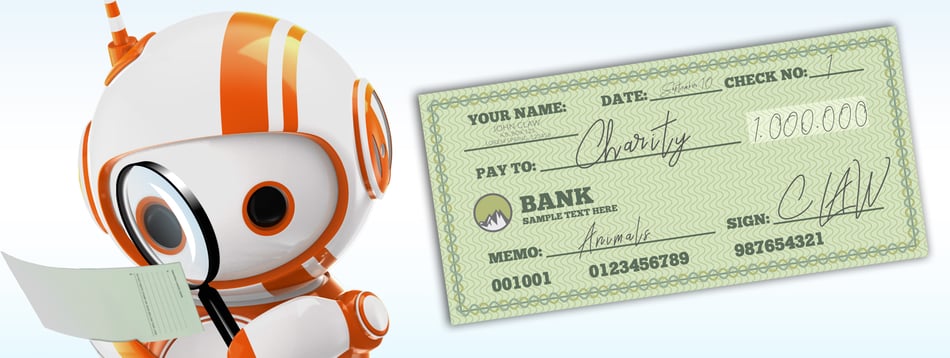
It is not surprising to hear of fake check scams going around, as many people still rely on paper checks for non-cash payments. Just ask any fraudster using the fake check scam to drain bank accounts across the country. While many consumers believe they would recognize a fake check if they saw one, the continued success of this scam proves otherwise.
Since fake checks often include the names of legitimate banks and credit unions, relying on how the check looks isn't enough to steer clear of this scam. Checks used in this fraud scheme may actually be real checks of identity theft victims. Stay alert to these common fake check scam scenarios to keep your hard-earned money out of the hands of crooks.
- You receive notice you've won the keys to the kingdom, aka a sweepstakes or lottery prize.
The company sponsoring the prize claims your check includes the taxes and processing fees you need to send back after depositing the check. After sending back the requested money via gift card, wire transfer, or money order, the scammer vanishes without a trace.
- An offer of employment which offers you a cash advance in the form of a check.
You're directed to use the funds to pay for equipment or supplies using gift cards. The "employer" is the only one who sells the equipment and supplies. Once you send them the physical gift cards or share the gift card numbers from the front and back of the cards, you're unlikely to recover those funds. You later find out that no job existed.
- A mystery shopping company claims they need your help to protect commoners from evil schemes.
They offer to pay you to evaluate retailers who sell gift cards used in scams. How ironic! The company sends you a check that includes your payment plus the funds needed to buy gift cards for the shopping assignment. You're directed to complete the task within 24 hours. This includes sending the physical gift cards to the company to confirm that you've completed the task. While legitimate mystery shopping companies exist, this one is likely operated by scammers.
- You receive a check in the mail inviting you to participate in a local auto wrap campaign.
All you need to do is call the number included with the check to get started. When you speak with someone, they say they desperately need people like you to help them meet the demand for car wrap advertising in your area. They explain that the check includes an advance payment in addition to money to pay a local decal professional. You're instructed to deposit the check and use the excess to pay the installer. The "excess" is actually coming out of your checking account. Spoiler alert - The installer is part of the scam.
- You're looking to sell some of your personal treasures online or in-person.
The buyer "accidentally" gives you a check for more than the advertised price. They'll ask you to return the overpayment via wire transfer, gift card, or money order. They may even threaten to leave a negative online review if you decline.
Bottom line: If someone asks you to deposit a paper check and asks for money back, it's probably a scam.
Federal law requires check funds be made available to account holders within a few business days. However, "available funds" doesn't equal "cleared funds". It could take weeks after you've deposited a check into your account before your financial institution determines it was fake. In the meantime, you could be responsible for withdrawals made on your account that you believed were covered by the fake check. So, stay safe and don't accept checks from strangers.
Shining the spotlight on scammers and their sneaky tactics might not make tabloid news, but it could result in one less fake check scam victim. If you suspect the fake check scam, immediately close the drawbridge. Speak with someone you trust or contact your financial institution before you act.
If you've already sent gift cards, money orders, or wired money to a scammer, contact the companies where you purchased them to learn how they might help recover your money. Don't forget to report the scam to the Federal Trade Commission, U.S. Postal Inspection Service, and your state Attorney General.
------------------------------
*Logix Federal Credit Union is not affiliated with any outside sources, and is a separate entity. Please contact Logix at (800) 328-5328 or visit www.lfcu.com if you have any questions about this topic or would like to consider opening an account.


%20(2)-1.png)
.png)




%20(952%20x%20317%20px)-2.png)


